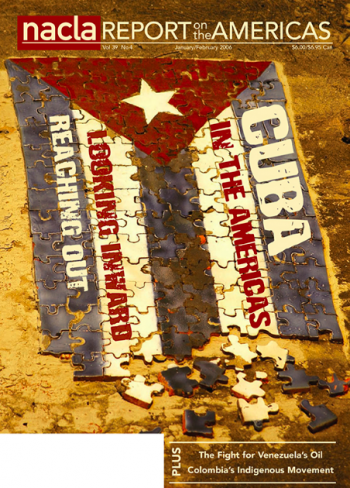Report
When President Bush traveled to Argentina in November for a summit with Latin American leaders, he was greeted by a formal diplomatic denunciation of his Administration’s refusal to extradite international fugitive and convicted terrorist Luis Posada Carriles to Venezuela.
In his best-known work, Cuban independence hero José Martí called for no less than a “second independence of our América” in the face of American imperialism, or as he termed it, “la Roma Americana” (the American Rome).
Jorge Luis Acanda González
Any analysis of civil society in Cuba faces two major difficulties, one of a theoretical and the other of a political nature. The theoretical difficulty stems from ambiguities in the way the concept of civil society is used in the contemporary social sciences.
If we define actors (social, political, economic) as groups having a distinctive public profile and defined interests vis-à-vis the system they seek to preserve, replace, or simply change, then it is extremely difficult to speak of actors in Cuba.
Last summer, the Havana airport buzzed with traffic. Caracas had become the most connected city to Havana, with Venezuela quickly becoming one of the top senders of travelers to the island. Most of the Venezuelans arriving at the airport came to the island seeking medical attention; in the opposite direction, thousands of Cuban doctors were leaving for Venezuela.
The world of lobbying against U.S. policy toward Cuba offers an instructive lesson in the ironies and vagaries of coalition politics. Consider last April’s Cuba Action Day, which mobilized about 700 constituents from 35 states in Washington, D.C. to persuade their congressional representatives to endorse a pair of identical House and Senate bills that would roll back the 2004 travel ban.
Philip Brenner & Marguerite Jimenez
In the fall of 2005 the National Intelligence Council of the CIA added Cuba to its secret list of 25 allegedly unstable countries where U.S. intervention might be required.

